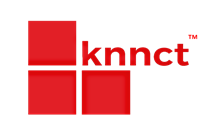In our previous installment, we embarked on a journey to understand the impact of interest rate hikes and how they’ve led many Canadians to rely on credit. We delved into the strategies that can empower consumers to manage their debt effectively. In this second part of the series, we continue our exploration by delving into specific, actionable strategies that can pave the way towards debt reduction and, ultimately, an improved credit score – a gateway to favorable mortgage options.
Prioritizing Debt Repayment
1. Deciding Which Debts Should Be Paid off First: Not all debts are created equal. Those carrying high interest rates demand immediate attention. Debts like credit cards, payday loans, unsecured loans, and CRA obligations should be tackled with urgency. Paying off high-interest debts first minimizes the interest paid and expedites the journey to debt-free living. Always ensure you meet the minimum payments on all debts to avoid accumulating interest on interest. Utilize any additional funds to target debts with the highest interest rates, eradicating them faster.
2. Potential Repayment Strategies to Use: Successful debt management hinges on a well-defined strategy. Two widely acclaimed methods are the Avalanche and Snowball strategies. The Avalanche approach prioritizes interest rates, while the Snowball approach addresses balances. Additionally, consider the Pay As It Is strategy for minimum payments across all debts without specific focus. This approach may result in prolonged repayment periods and higher interest costs. The Snowball Strategy focuses on paying off the smallest debts first, providing a sense of accomplishment. The Avalanche Strategy prioritizes paying off debts with the highest interest rates to save on overall interest costs. Debt consolidation through loans with lower effective interest rates is also an option to streamline repayment and alleviate financial stress.
3. Closing Credit Accounts: Irrespective of your chosen repayment strategy, recognize the significance of closing credit accounts once debts are paid. While it’s advised to maintain one older credit account to uphold credit history, refrain from keeping unnecessary accounts active. A responsible approach to credit management enhances debt control.
Seeking Professional Assistance
4. Engaging Financial Professionals: Managing extensive debt can be mentally and emotionally taxing. It can disrupt your peace of mind, impact social interactions, and hinder work productivity. If you find your debt overwhelming and existing repayment plans ineffective, consider consulting a financial professional or a Licensed Insolvency Trustee. These experts can assess your situation and provide insights into viable solutions, potentially alleviating stress and anxiety. While these services come at a cost, they may be instrumental in regaining financial stability.
Elevating Your Credit Score
5. Enhancing Your Credit Score: Your credit score serves as a litmus test for your debt management capabilities. Any issues, especially non-payment, reflect negatively on your score and borrowing prospects. A poor credit score can hinder employment opportunities, rental agreements, and more. A higher credit score, above 700, indicates financial strength and improves your chances of favorable loan approval and lower interest rates. To bolster your score, maintain a low debt-to-credit ratio, ideally keeping credit card balances at 25-30% of your credit limits.
The Path Forward
When grappling with debt, it’s easy to lose sight of the bigger picture. The key to liberating yourself from this burden is comprehending your total debt landscape, crafting a comprehensive repayment plan, and steadfastly adhering to it. The pursuit of financial freedom demands discipline, consistency, and a strategic approach.
As Patricia Giankas, Founder of MyCreditz, highlights, “The strategy that works best for each individual is intricately linked to their mindset and personality.” While the journey may be uniquely personal, technology-driven solutions, like those offered by MyCreditz, can offer real-time insights and progress tracking to bolster your efforts.
Remember, your financial journey is a gradual process. By embracing these strategies, you pave the way for better credit, lower interest rates, and ultimately, enhanced financial well-being. In the final installment of this series, we’ll explore additional avenues and insights that will enable you to reclaim control of your financial narrative. Until then, commit to your plan, persevere through challenges, and stay focused on the path to financial freedom.

